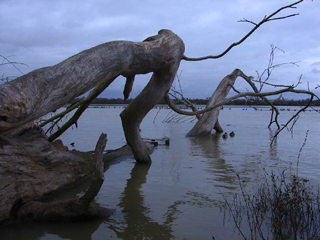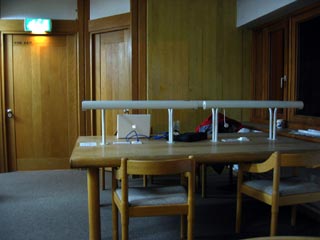
From writing about foreign aid, I have moved on to failed states. I am meant to discuss who defines states as ‘failed’ and what consequences it has for sovereignty. It seems to me that there are three general ways in which a state can be considered to have failed:
- States can lose their integrity, as viewed from the security perspective by outsiders.
- Alternatively, they can fail to maintain other characteristics that are considered essential in a modern state, such as a monopoly on the legitimate use of force.
- Finally, they can fall below some moral threshold, below which their government or leadership is no longer seen as legitimate.
Of course, the relevance of a state being ‘failed’ or not failed lies primarily with how this changes the behaviour of other states and non-state groups towards it. If being a failed state suspends the traditional rights afforded to states – from territorial integrity to diplomatic immunity – being thus categorized could very significantly affect the treatment of both individuals and territory by outsiders.
In the first instance, a ‘failed’ state might be one that has lost control of what passes in and out of its territory, to the point where it endangers neighbouring states. This is a situation very specifically addressed in the United Nations Charter. Chapter VII specifically empowers the Security Council to “to maintain or restore international peace and security.” Generally, serious measures such as sanctions or interventions need to be justified as responses to such a threat. While the issue is sometimes fudged – for instance, by saying that possible refugee flows from an internal conflict threaten international peace and security – this is still quite generous amount of space to give states, in which to manage their own affairs.
There is a problem here, when it comes to states that have strong governments, and possibly even democratic legitimacy, but nonetheless either passively submit to or actively encourage activities that threaten international peace and security. Supplying weapons to illegal groups, for instance, is an activity that a very great many states have engaged in. It may be possible to be a criminal state without being a ‘failed’ state. If so, the difference in terms of treatment is worthy of consideration.
A definition of state failure based on the maintenance of certain characteristics by the state under consideration necessitates a setting out of what the essential characteristics of statehood are. In The Neutrality of Great Britain during the American Civil War, Montague Bernard explained it thusly:
a Community or number of persons permanently organised under a Sovereign Government of their own, and by a Sovereign Government we mean a Government, however constituted, which exercises the power of making and enforcing law within a Community, and is not itself subject to any superior Government. These two factors, the one positive, the other negative, the exercise of power and the absence of superior control, compose the notion of Sovereignty and are essential to it.
Here, non-failed states need to do more than control their borders; they also need to maintain the capacity to enact and enforce laws. Probably, this requires more resources than just maintaining territorial integrity, though it is hard to imagine a state with impeccably policed borders and a largely lawless interior. The bigger issue with this expanded definition is that it begins to subject the internal structures of a state to external scrutiny, in a way closely tied to the ability of that state to maintain international legitimacy and recognition.
(I know we discussed a formal definition of statehood in international law, in the class I took at UBC on that subject. I can’t remember which specific document was involved, however. Anyone who does is very much encouraged to comment. All my notes and textbooks from the course are back in Vancouver.)
The definition of state failure with the widest scope is some kind of affirmation of moral codes that non-failed states must obey, even in the conduct of their internal operations. This is, of course, a conception that arises hand in hand with the idea of human security. The idea that governments that either actively engage in crimes against humanity or allow them to take place unchecked have foregone their sovereignty is one that can be easily justified within a liberal tradition of political theory. Of course, it is a step beyond that to affirm the right of other states, or of the international community, to intervene in such circumstances.
Other problems arise when the above criteria are considered in combination. Take the example of Pakistan. By many measures, it is a strong state. There is an organized central government with a clear structure. There is an organized military and police forces. The state is externally recognized by the international community. At the same time, Pakistan either cannot or does not control the flow of materials and individuals across its northern border with Afghanistan, despite a recent and bloody effort on the part of the army to take control. Also, Pakistan has been shown to be involved in international illicit trade in nuclear materials and information on making nuclear weapons. While few would call Pakistan a failed state, it does demonstrate characteristics associated with state failure.
In the end, it isn’t clear to me that the failed / non-failed dynamic has much usefulness, when it comes to states. It is too simple to allege that a right to intervene arises from failure to comply with one or another set of requirements. Some kind of more sophisticated moral and legal conversation is necessary, making this binary distinction just one point of discussion in a broader dialogue.





